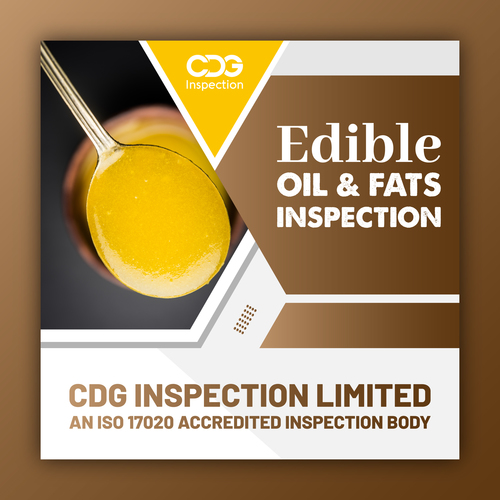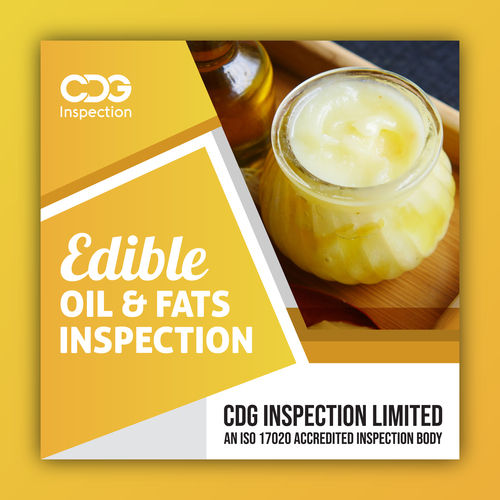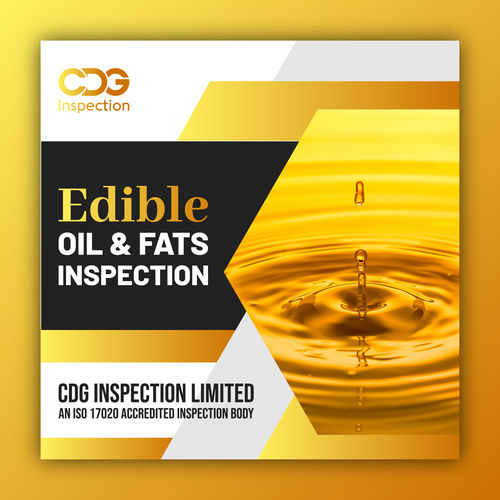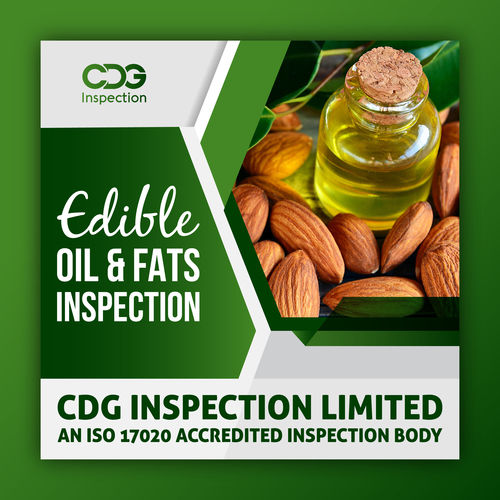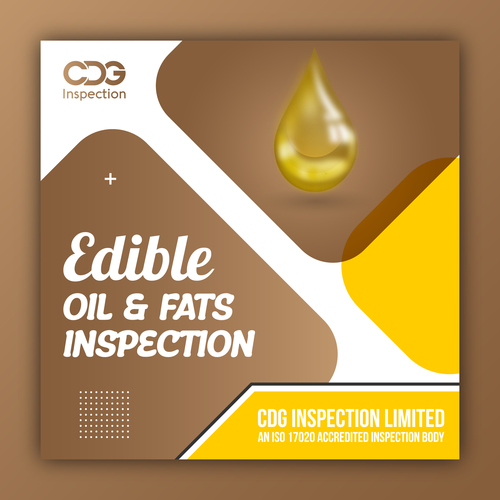Oil and Fats Inspection in Raipur
Product Details:
X
Product Description
CIL Provides Accredited Edible Oil & Fats Inspection Services in Raipur, Chattisgarh, India. The term oils and fats is generally applied to the triglycerides of fatty acids in plant seeds and animal tissues. Oils and fats constitute one of the three main types of organic materials regarded as the building materials of living organisms, the other two being proteins and carbohydrates. More than 100 varieties of oil bearing plants and animals are exploited as sources of oils and fats. The most important vegetable sources are, the olive, coconut, peanut, cotton seed, soya bean, rapeseed (canola oil), mustard seed, flax or linseed, palm fruit, sesame, sunflower, palm kernel, castor bean, hemp seed, tung, cocoa, mow rah, corn and babassu. The main animal sources are beef cattle, pigs and sheep, the whale, cod and halibut. Edible oils and fats provide a concentrated source of food energy, serve as carriers of fat soluble vitamins and also furnish the essential fatty acids which are of vital importance to metabolism. Oils and fats constitute the major raw materials for soaps and detergents, paints, lacquers and varnishes, lubricants and illuminants such as candles. They are also used in the manufacture of linoleum and oiled fabrics, in the manufacture of fixatives and mordants in the tanning of leather, and as feedstock for chemical synthesis. Processing, Initial processing depends upon the raw material, for example, animal fats are rendered in steam jacketted vessels, seeds are cleaned, milled and separated and nut meats are flaked. The fats or oils are extracted by pressing or treatment by solvents, and further processing depends upon the end use. Olives may be pressed several times, but no further treatment is usually required. For other edible oils and fats, processing may comprise a number of different stages, including refining, deodorization, hydrogenation, solidification or emulsification. Raw oils and fats contain impurities, some of which are objectionable because they darken the oil, cause it to foam and smoke on heating, impart an undesirable flavour or odour or affect processing. Refining, which consists of neutralization and bleaching, removes most of these impurities. Neutralization removes fatty acids and gummy phosphatides by alkali and degumming treatments. The raw materials are bleached by absorption on natural or activated bleaching earths, however, heat bleaching may be employed. Oil temperature does not normally exceed 100 degree C during refining. Deodorization removes the odoriferous compounds by steam distillation at high temperature and low absolute pressure. Liquid oils and soft fats are converted into firm plastic fats by hydrogenation, which also helps prevent rancidity due to oxidation. In this process, the oil is reacted with hydrogen at a temperature of 180 degree C or more in the presence of a catalyst, usually finely divided nickel. The hydrogen is fed in at a pressure of between 2 and 30atmospheres, depending upon the desired end product. If the oil or fat is to be marketed in plastic or emulsion form, further processing is required. Many proprietary brand oils and fats are blended, and shortenings are solidified to yield granules by controlled gradual cooling (fractionation) and separation of crystallized fractions at various temperatures based on their melting points. An alternative method produces a texturized product by rapid chilling in special equipment called a votator.
Tell us about your requirement

Price:
Quantity
Select Unit
- 50
- 100
- 200
- 250
- 500
- 1000+
Additional detail
Mobile number
Email

